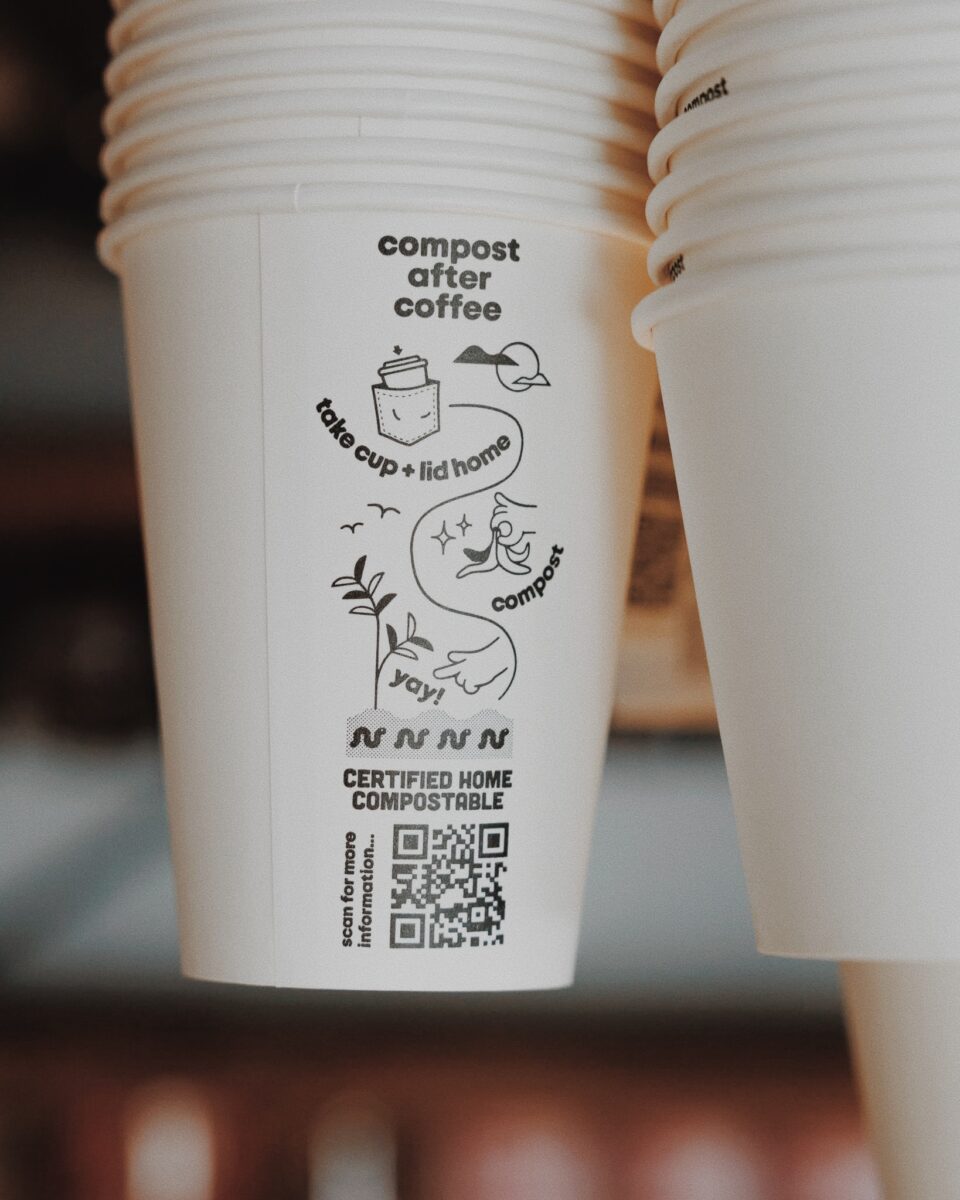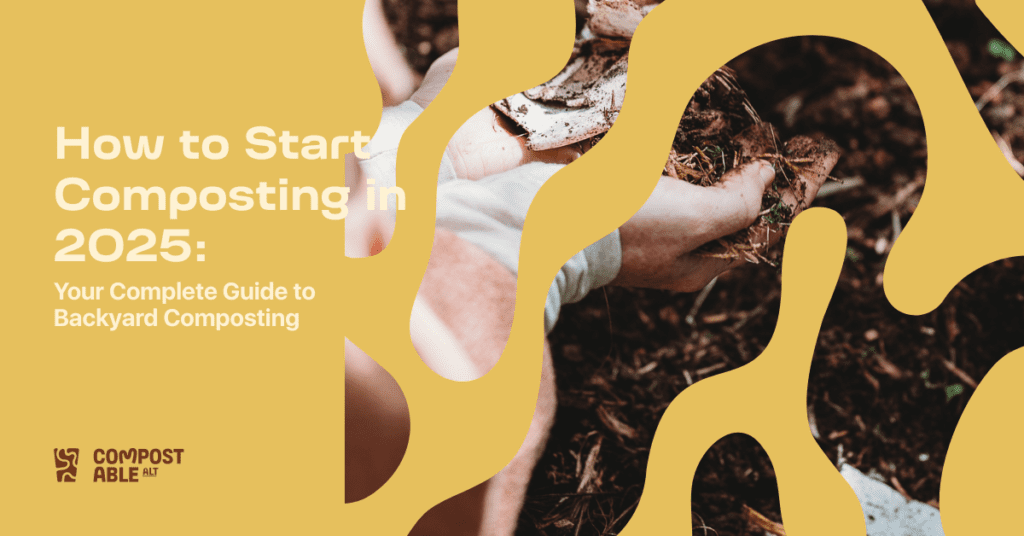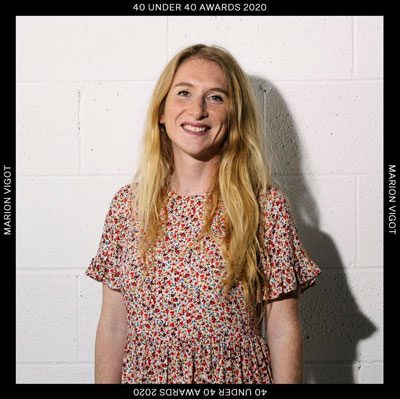Why Composting Your Coffee cups Takeaway Actually Matters
If you’re like most Aussies, coffee cups takeaway are part of your daily routine. Maybe it’s your morning long black from the local cafe or an arvo flat white on the go. But what happens after you’ve finished your drink?
Unfortunately, most cups end up in landfill. Even ones stamped with “compostable” or “eco-friendly” logos often don’t get composted. They’re tossed in the wrong bin, sent to landfill, and never become compost – releasing methane, a potent greenhouse gas.
At Compostable Alt, we asked a simple question: what if your coffee cups takeaway (and lid!) could actually go in your home compost?
No fancy industrial composting facilities. No confusing claims. Just a cup you can compost yourself, turning yesterday’s coffee into tomorrow’s garden fertiliser.
The Problem With Most coffee cups takeaway
Most takeaway cups are lined with plastic to make them waterproof. They look like paper, but they’re fused with a thin plastic film, making them impossible to compost or recycle through regular kerbside bins.
Even so-called “compostable” cups aren’t always as green as they seem.
There are two main types:
Biocups or PLA-lined cups (bioplastic): These are made to compost in industrial composting facilities that reach high heat, moisture and oxygen under strict and controled conditions. But here’s the problem: in Australia, these facilities are few and far between. Many councils don’t accept PLA-lined cups in green bins. In NSW all compostable packaging have been banned from the green bin!
Certified home compostable cups and lids: These break down in a backyard compost or worm farm. This is what we make at Compostable Alternatives: cups and lids that are tested to break down without needing industrial conditions.
Many packaging brands still throw around terms like “biodegradable” and “eco” without clearly stating how (and where) the product actually breaks down. If your council doesn’t have a facility to process bioplastic-lined cups, they’ll end up in landfill and will not become compost (which defeats the purpose of switching to compostable cups). It’s that simple.

Why Compost Your coffee cups takeaway at Home?
Composting is one of the most powerful (and underrated) ways to cut your carbon footprint. It’s something you can do right now, without waiting for governments or recycling schemes to catch up.
When you get coffee cups takeaway and compost them, you:
✅ Divert waste from landfill: Organics like paper and plant fibres shouldn’t be in landfill where they release methane.
✅ Close the loop on resources: Instead of treating your coffee cup as waste, you’re turning it into compost to feed your garden (and yourself later on!).
✅ Reduce your emissions: Composting reduces methane emissions from landfill and avoids the emissions of collecting, trucking, and processing waste elsewhere.
✅ Reconnect with nature: When you compost at home, you see your waste break down into something useful. It’s empowering.
With our certified home compostable cups and lids, you can literally watch them break down in your compost bin. No guesswork, no greenwashing.
What Happens When You Compost Coffee Cups takeaway?
Our home compostable cups and lids are made from responsibly sourced paper and a certified home compostable aqueous technology that makes them waterproof. They’ve been tested to break down in Australian home composting conditions and are certified to the Australian Standard AS 5810.
When you toss them into your home compost:
Microbes, fungi, and worms break down the material
In a few days, the cup softens and starts decomposing
In 10 to 24 weeks, or less (depending on compost conditions), it’s turned into compost for your garden
TIP: If you tear the cup into smaller pieces, it’ll break down faster (just like cardboard or brown paper).
No Compost Bin Yet? Here’s How to Start
No bin? No problem. Composting at home is easier than you think. You can:
Set up a compost bin in your backyard, courtyard, or balcony worm farm
Join your local community garden and compost there
Get to know your neighbours over composting through platforms like Peels
Check if your council runs a food and garden waste program (some accept home compostable packaging – best to check locally)
Even a small compost bin makes a difference. And once you start, you’ll probably want to compost your food scraps, paper, and garden waste too.
Why Cafes Should Care Too
We work with over 100 Australian cafes across SA, VIC, NSW, Canberra and Tasmania who wanted a better solution for their customers. By switching to certified home compostable coffee cups for takeaway, they’ve:
Reduced their environmental footprint
Given customers an easy way to compost at home
Avoided greenwashing claims about packaging
Supported a circular economy
Some cafes even collect their own used cups for composting in-house or are part of a local composting hubs.
OK, But Let’s Be Honest
We’re not here to say that compostable packaging will save the planet (although composting might!). The best cup is the reusable one you bring from home. But let’s be real: sometimes people forget. Sometimes takeaway happens.
So when single-use is needed, choosing a home compostable cup and lid that breaks down in your backyard compost is a far better option than landfill or wishful recycling.
So, Should You Compost Your Coffee Cups Takeaway?
- If your takeaway cup is certified home compostable : absolutely.
- If it’s from us at Compostable Alternatives: 100%, yes.
- If it’s a vague “eco-friendly” cup with no certification? Probably not (unless you know exactly how it’s supposed to be composted and where).
When you compost your coffee takeaway cup and lid, you’re keeping waste out of landfill, making your own compost, and taking one small but meaningful step to close the loop on waste.
It’s local. It’s low effort. And it’s climate action you can literally do in your backyard.
About the author:
Marion is a French Australian entrepreneur, profoundly interested in the composting industry. Her words are her own thoughts and come from her research and learning. Although she quotes and sources the information she shares, Marion is not a scientist or a researcher and her opinions should not be understood as a scientific truth.
Through her findings and experience in the industry, she is attempting to support hospitality businesses and producers in their search of alternative choices to single-use and other types of plastic packaging. You should always do your own research to best inform yourself.
Share this article :
Compost Club Blog
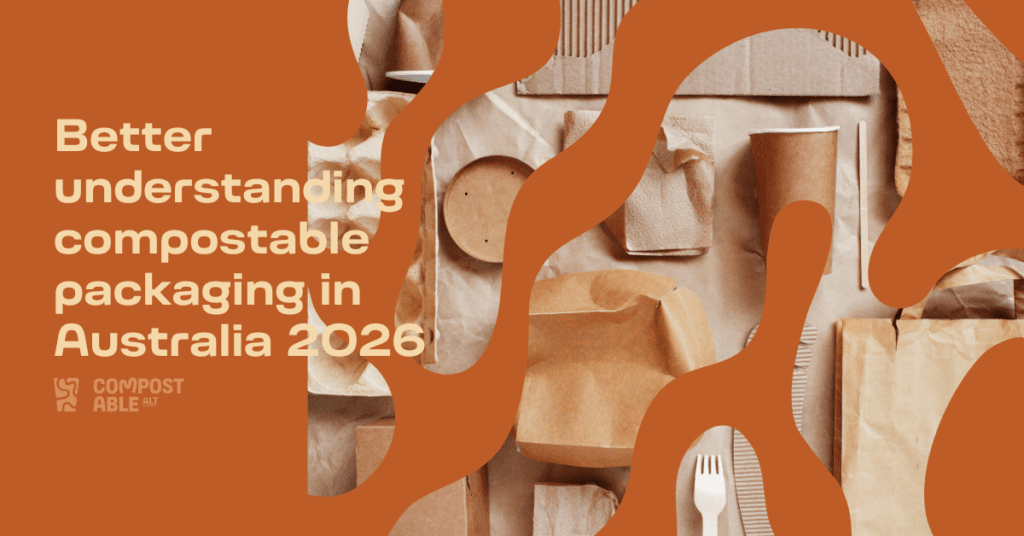
Better understanding compostable packaging in Australia in 2026
In Australia, we use 5.4 million tonnes of packaging per year, only 11,000 tonnes are certified compostable and 1,500 tonnes are recovered through composting. That’s an extremely low recovery rate. In this article we’ll have a look at the two different types of compostable packaging and the role of certifications to prevent greenwashing.
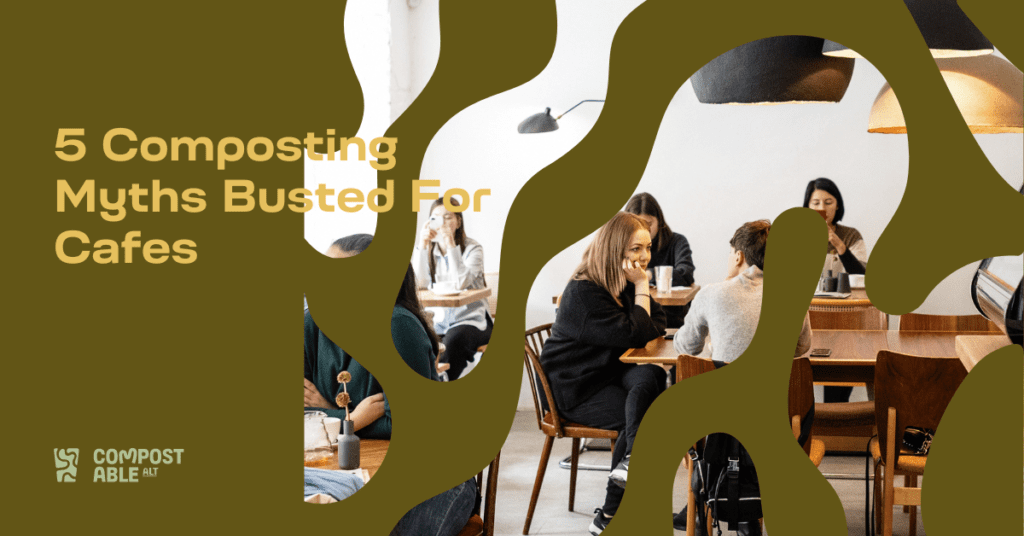
5 Coffee Takeaway Cup Composting Myths Busted for Cafes
Do you offer takeaway coffees? Let’s bust the 5 biggest coffee takeaway cup myths so you can make the right call for your business, your customers, and the planet.
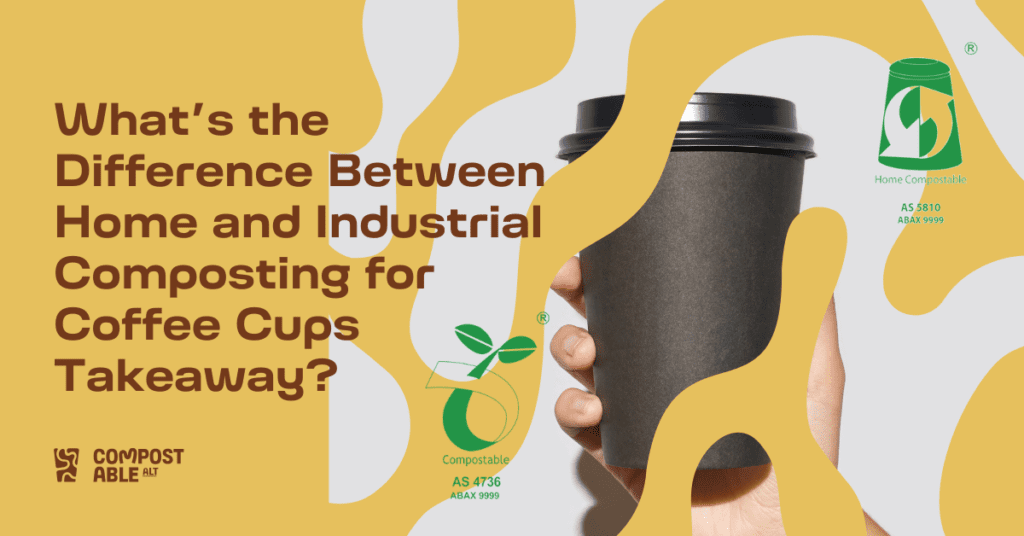
What’s the Difference Between Home and Industrial Composting for Coffee Cups Takeaway?
If you’re a café owner, a sustainability nerd, or just someone trying to do the right thing, knowing the difference between home and industrial composting is key to making better packaging decisions.

